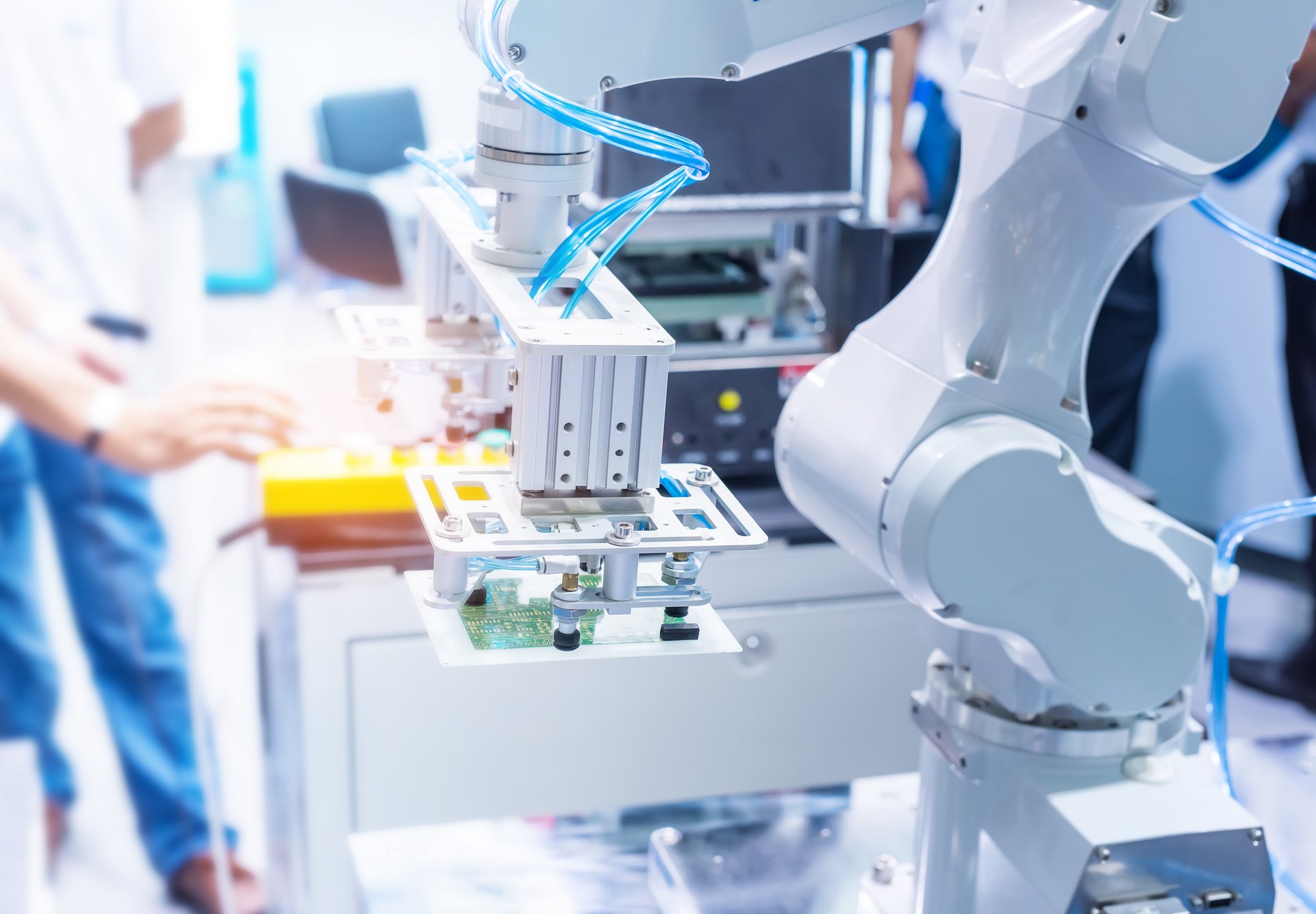At the dawn of the fourth industrial revolution, driven by artificial intelligence, the manufacturing and natural resources sectors are undergoing a major transformation. The integration of physical production systems with advanced decision-making software is becoming essential. Our experts are exploring innovative solutions to help these industries automate their processes and make the most of their massive data.
Processes and computer-integrated manufacturing
Optimizing supply chains with artificial intelligence
Towards more efficient industries with artificial intelligence
Research topics
Managing natural resources for processing requires collaboration between multiple stakeholders and decision makers who do not share the same objectives or planning processes. Resource management also involves other challenges, including the need for significant long-term investment, the substantial quantities of raw materials and products involved, and the fact that processes are often based on uncertain information and data. UL researchers are developing software systems that coordinate activities across entire industries and process and analyze vast amounts of data in order to optimize supply chains from raw materials to customers. Interconnecting all of a company’s operations facilitates decision making and improves profitability.
The remarkable progress in computer science in recent years has now made it possible to use computers to model and simulate highly complex phenomena. Algorithms can be optimized to obtain stable and highly precise formulations. Given the complex problems many industries face, digital simulations are often the only way to get a better handle on manufacturing processes with a view to producing high quality, value-added products. This is a good example of the contributions mathematics can make to applied science.
Process optimization starts with observation—extracting reliable data from cause-and-effect relationships between variables in order to develop virtual models used to understand and predict a system’s complex behaviours. In the optimization phase, these results serve as a basis for continuously modifying the process to maximize production and product quality while reducing costs and energy consumption.
The faces of process and computer-integrated manufacturing research
Discover the passionate Faculty members who actively contribute to this area of excellence.
Unités de recherche
Canada Research Chairs
- Canada Research Chair in Operations Research in Natural Resources Chairholder: Mikael Rönnqvist, full professor, Department of Mechanical and Industrial Engineering
Research centres, institutes, and groups
- Big Data Research Centre (BDRC) Director: Philippe Després, full professor, Department of Physics, Engineering Physics and Optics
- Centre de recherche sur la géologie et l'ingénierie des ressources minérales (E4m) Research director: Georges Beaudoin, full professor, Department of Geology and Geological Engineering
- Interuniversity Research Centre on Enterprise Networks, Logistics and Transportation (CIRRELT) Faculty members: Sophie D'Amours, rector, Department of Mechanical and Industrial Engineering, full professor, Department of Mechanical and Industrial Engineering | Jonathan Gaudreault, full professor, Department of Computer Science and Software Engineering | Mustapha Nour El Fath, full professor, Department of Mechanical and Industrial Engineering | Mikael Rönnqvist, full professor, Department of Mechanical and Industrial Engineering
- FORAC Research Consortium Faculty members
- Consortium de recherche en ingénierie des systèmes industriels 4.0 Director: Jonathan Gaudreault, full professor, Department of Computer Science and Software Engineering
My project aims to support coordinated decision-making at the procurement and production system levels. I want to help people work together more effectively to deal with constant changes in available resources by harnessing the concepts of data quality, uncertainty, and collaboration.
Vanessa Simard, PhD student in mechanical engineering (concentration in industrial engineering) supervised by Nadia Lehoux, professor, Department of Mechanical and Industrial Engineering
Graduate studies
Make the leap to graduate studies
Learn more about the admission process for graduate studies
Explore our programs of study based on your interests
Resources for researchers and student researchers
The Vice Dean of Research
The mission of the faculty’s Office of the Vice Dean of Research is to familiarize faculty members with research funding program requirements. Its research development advisors can assist researchers in preparing funding applications and drafting research contracts. They can also provide information and guidance on technology transfer opportunities.
